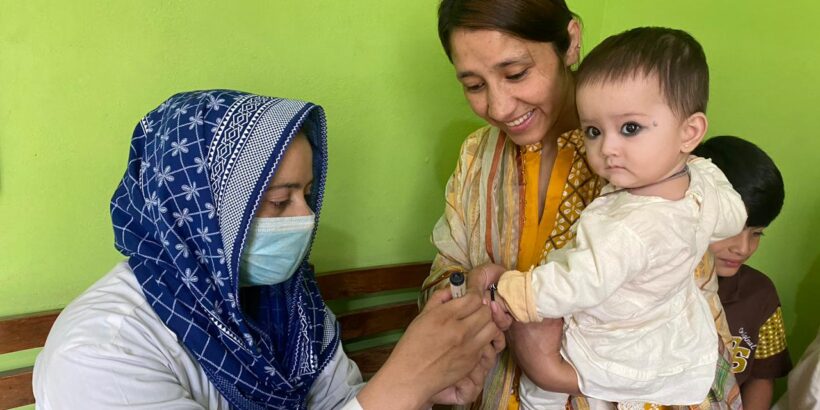Typhoid is transmitted through contaminated food, water, or contact with an infected person’s feces. While 2.1 billion people have gained access to safe drinking water since 2000, global access is still inadequate. In 2022, more than 1.7 billion people relied on contaminated sources for their drinking water. According to a 2024 UN report, 3.5 billion people do not have access to safe sanitation. This situation has led to an estimated 9 million cases and 110,000 deaths from typhoid each year.
To address the shortage of safe water, it is essential that governments and donors prioritize strategies and funding to improve access to safe water, sanitation, and hygiene (WASH). Also, to prevent waterborne diseases such as typhoid, it is important to expand access to vaccines, including typhoid conjugate vaccines (TCVs), as a measure to reduce disease transmission.
Countries experience increased water stress due to climate change
The adverse effects of climate change, particularly during prolonged dry seasons, further exacerbate the scarcity of safe drinking water and subsequently raise the risk of typhoid. Hydrological models estimate that when a country utilizes eighty percent of its available water resources, it becomes extremely water-stressed, a situation that Mexico and South Africa have encountered recently. Climatic events, like droughts induced by El Niño, can worsen water stress in unexpected or prolonged ways.
When people have limited access to safe drinking water, they often resort to using contaminated sources to collect household water, putting their families at risk of potentially contracting enteric pathogens such as typhoid. In Sub-Saharan Africa (SSA), an estimated two out of every three people lack consistent access to safe drinking water. This problem is projected to worsen as the population in Africa is expected to increase and the impact of climate change continues to grow more severe, creating immense pressure on safe water resources.
Vaccines: a near-term preventive measure
The infrastructure for safe drinking water and improved sanitation requires large government and donor investments and can take years to implement. A cost-effective solution to prevent typhoid is to introduce single-dose typhoid conjugate vaccines (TCV) into routine immunization. TCVs are readily available and can have a near-immediate impact on vaccinated children and communities. With support from Gavi, the Vaccine Alliance, many eligible countries can introduce TCV with reduced costs to their national immunization programs, thereby protecting millions of children quickly. Liberia, Malawi, Nepal, Pakistan, and Zimbabwe have leveraged Gavi support to make TCV available in routine immunization.
The gold standard: TCV and WASH
On their own, both TCV and WASH interventions are cost effective and proven to reduce disease transmission. However, when combined, vaccines plus WASH, together, are a gold standard approach to ensuring disease prevention and control. In countries where investments have been made in WASH, the typhoid burden has reached near zero. For the countries that have introduced TCV into their routine immunization system, the WASH improvements must still be invested in and sustained. For the countries that have not yet introduced TCV, now is the time to protect children against typhoid while ongoing efforts for WASH improvements are forthcoming.
Cover Photo: A young girl receives TCV in Pakistan. Credit: PHC Global.



